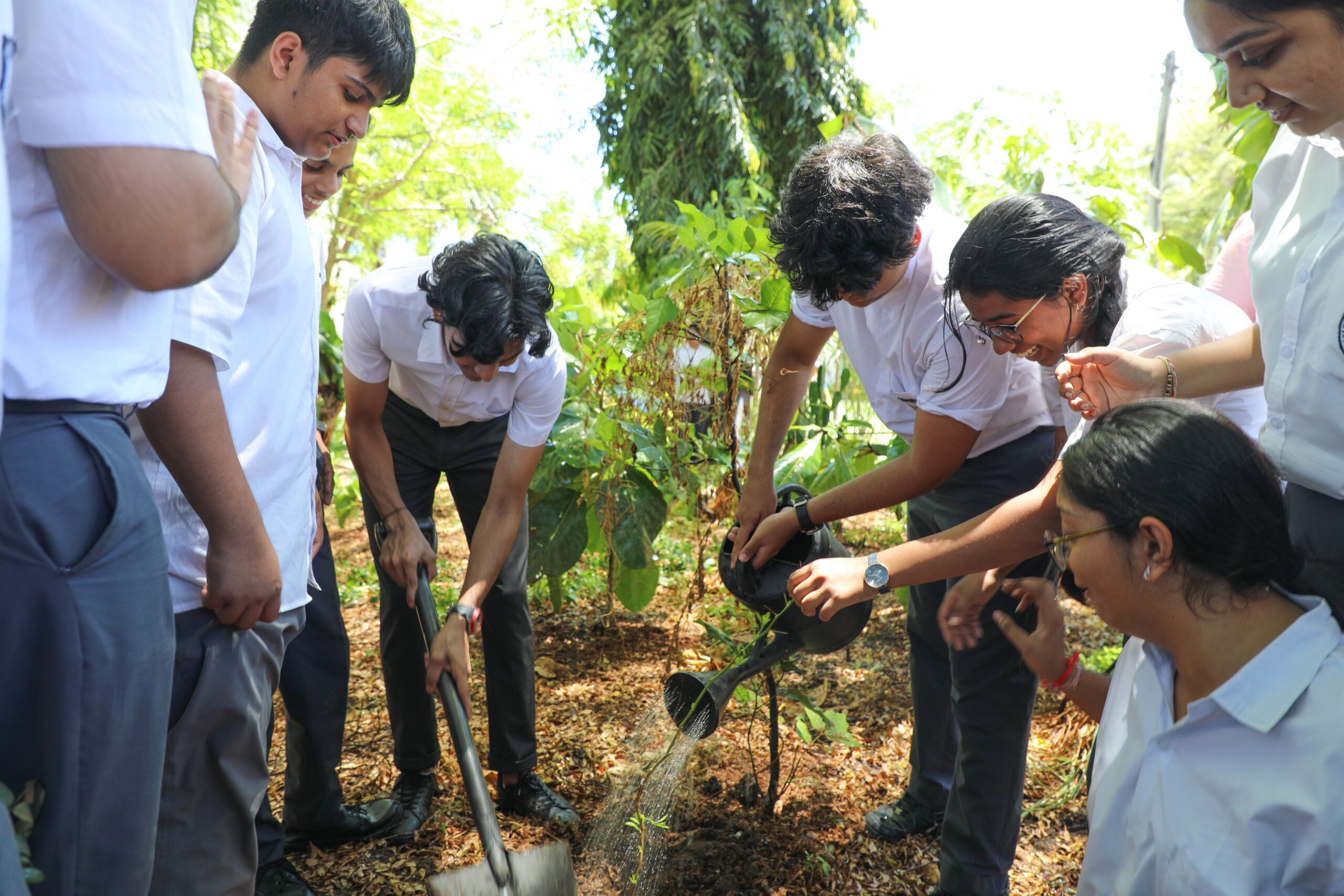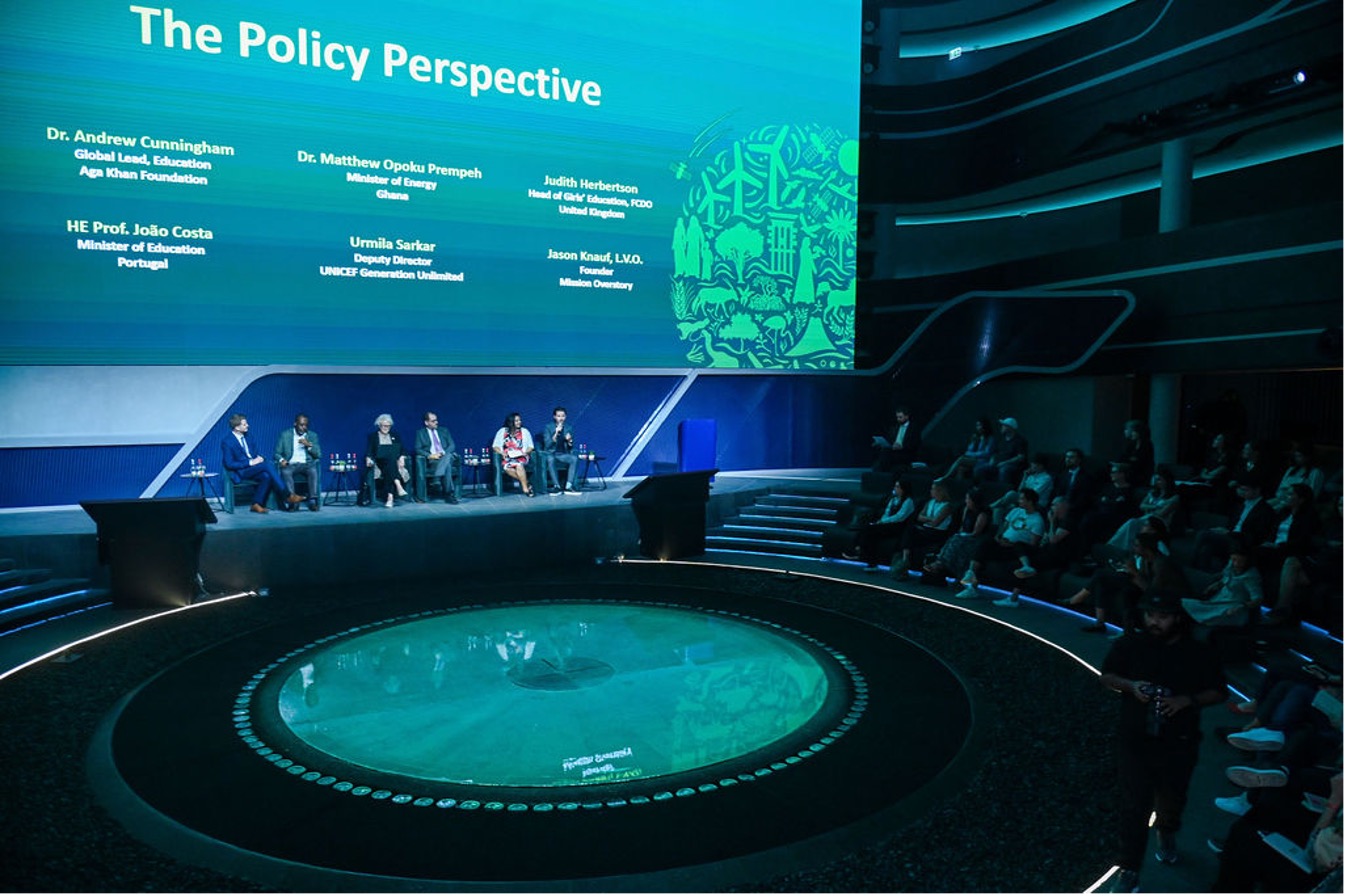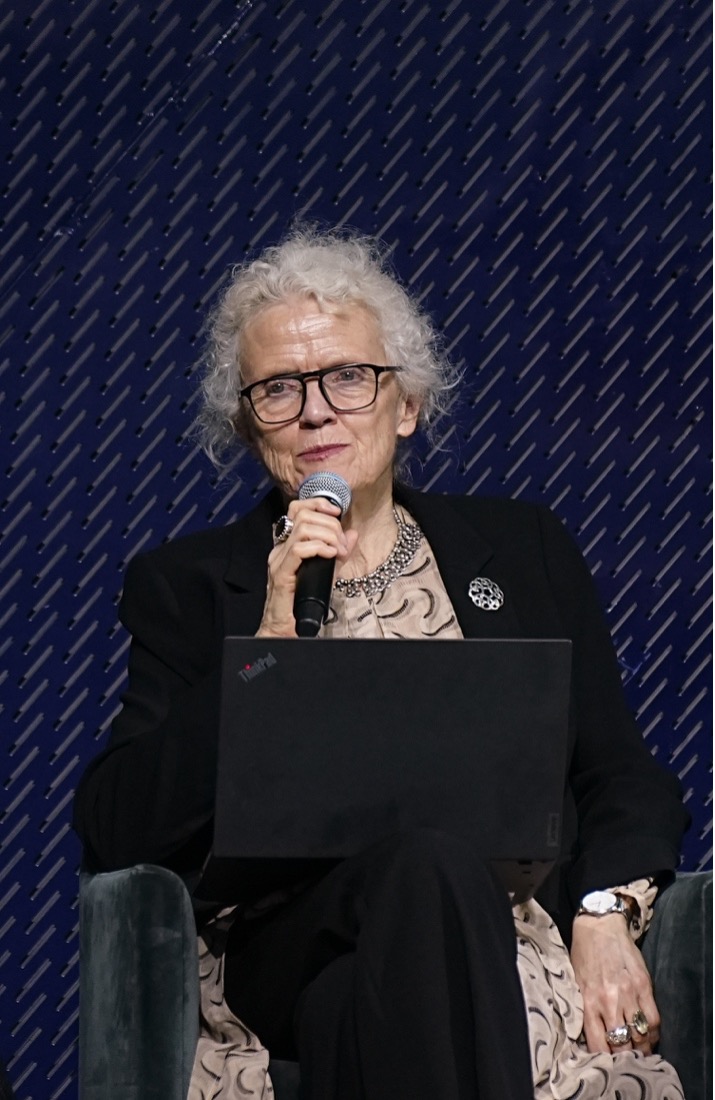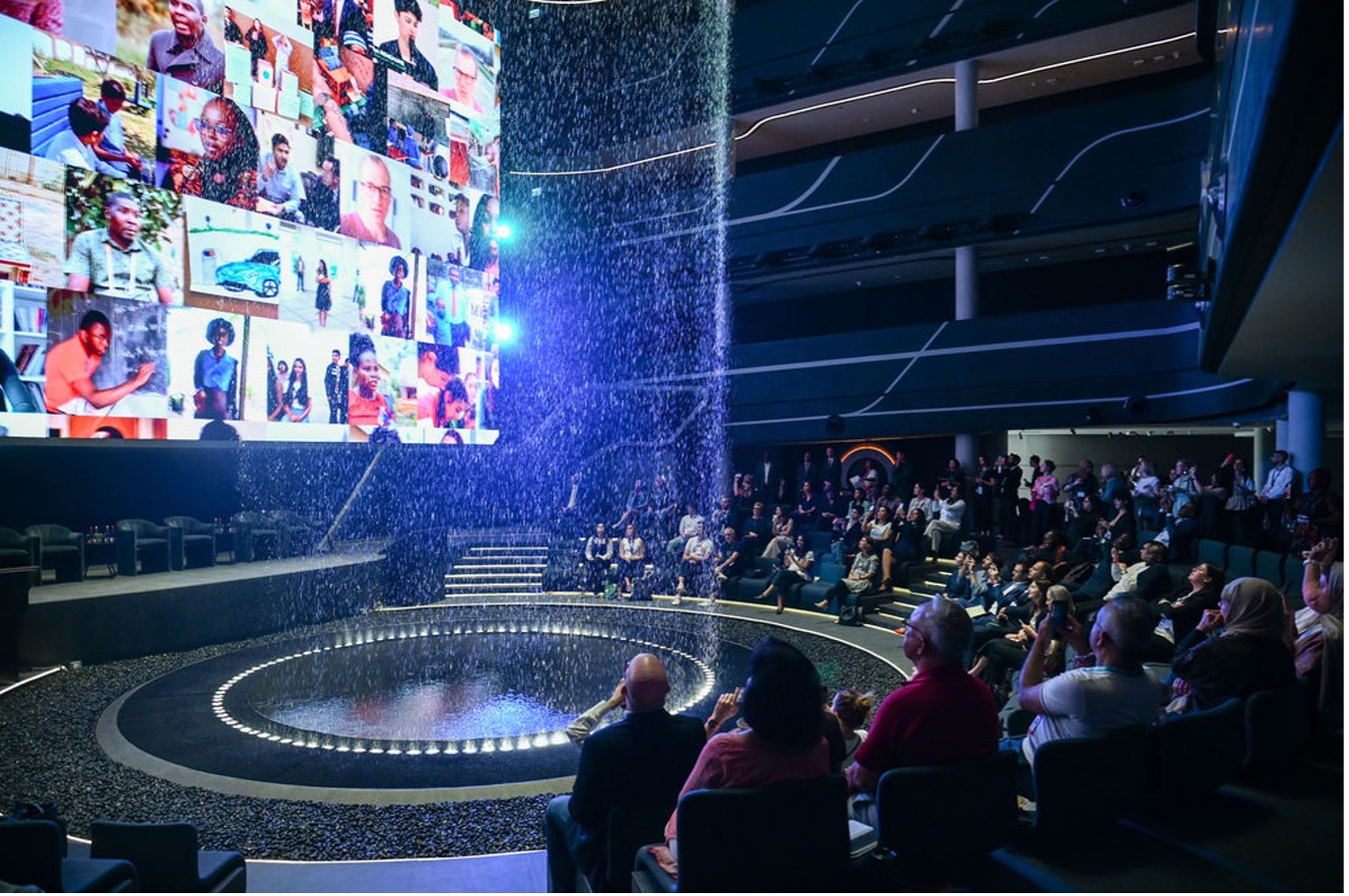The new partnership was announced by the UK Foreign, Commonwealth and Development Office at the Dubai Cares’ RewirED Summit at COP28, and will be delivered through AKF’s Schools2030 global initiative

On the first-ever day for ‘Children, Youth, Education and Skills’ at a COP (the United Nations’ annual climate change conference), the FCDO and USAID announced a new partnership with the Aga Khan Foundation to ensure that teachers and young people remain at the center of the educational response to the climate crisis.
The CO-CREATE initiative (Collaborative Opportunities for Climate Resilience, Empowerment and Transformation through Education) will test solutions to promote climate action in schools and communities with local stakeholders, in particular girls and women, with the aim of equipping teachers, young people and community members in a holistic approach with the knowledge about climate change that they will need to respond through their local contexts.

The CO-CREATE launch announcement was made at the RewirED Summit during a panel which included: Dr. Andrew Cunningham, Global Lead for Education, AKF; Dr. Matthew Opoku Prempeh, Minister for Energy, Ghana; Judith Herbertson, Head of Girls’ Education, FCDO; H.E. Prof Joao Costa, Minister for Education, Portugal; Urmila Sarkar, UNICEF Generation Unlimited; Jason Knauf, Founder, Mission Overstory
CO-CREATE will test new, teacher- and youth-led solutions for promoting climate action in schools and communities. The investment by USAID and FCDO will scale AKF’s Schools2030 proven three-step method to advance transformative teacher leadership by supporting educators to assess, innovate and showcase new ways to advance holistic quality learning outcomes and inclusive learning environments in and through climate action. The Aga Khan Foundation will be leading a consortium of key partners in climate, gender and education, including the Forum for African Women Educationalists, Belmont University, Creative Action Institute, and Restless Development.

Judith Herbertson, Head of Girls’ Education, FCDO, who announced the CO-CREATE grant, which will also link gender equity to climate action.
“The evidence shows that girls’ secondary education is the most important socio-economic determinant in reducing vulnerability to climate change in communities.
This is why the UK and the US co-created the Climate Action Partnership for Education (CAPE) which is a challenge fund that will research and develop solutions to advance climate action in and through education with a focus on girls. I’m really delighted that CAPE has awarded its first project in Tanzania and will be implemented by the Aga Khan Foundation… “The fundamental success of this will rest with teachers and headteachers.”
–Judith Herbertson, Head of Girls’ Education, FCDO
We are excited to partner with AKF and USAID Tanzania on CO-CREATE. This initiative works to engage schools and communities, especially girls and women, to integrate climate action and awareness into education programs. It marks the first award of USAID’s groundbreaking Climate Action Partnership for Education (CAPE) with FCDO, which provides a platform to test and scale climate-resilient learning solutions for girls and helps advance USAID’s climate and localization priorities.
–LeAnna Marr, USAID Deputy Assistant Administrator, Acting U.S. Senior Coordinator for International Basic Education Assistance
CO-CREATE will launch in Tanzania and drive climate innovation in and through education by placing teachers, learners and community members at the center of designing the educational response to climate challenges. This is why it was announced during the high-level ‘Policy-Practice Think Tank for the Future of Climate Education’ at COP28, where teachers took the stage and showcased climate education solutions from Tanzania, Italy, Kenya, India, Colombia, Zimbabwe, and Bangladesh.

The Aga Khan Academy is working to educate young people on coral reef restoration in Kenya
One such teacher is Alison Hampshire, from the Aga Khan Academy, who showcased how her school community is taking care of the ocean through innovative coral reef restoration efforts in Kenya. Alison is a member of AKF’s newly launched Teachers for the Planet online portal, in partnership with Teach For All, where 100 teacher-led, teacher-tested, and teacher-approved climate education solutions are showcased from over 60 countries, supported by Dubai Cares and the Aga Khan Foundation. The Teachers for the Planet portal was also launched at the RewirED Summit at COP28. CO-CREATE will continue to grow this cadre of teacher leaders for people and planet throughout Tanzania and beyond.
According to Judith Herbertson,
“Initiatives like Teachers for the Planet’ are essential in giving educators the platform they need to have a voice to advance climate education globally.”
Through CO-CREATE, educators and young people will be equipped with more skills and knowledge about climate change and supported to take decisive action within their own communities to lead efforts in climate mitigation and adaptation. The initiative will generate new evidence and methods for advancing climate action, holistic learning outcomes, and gender equality while fostering crucial cross-sectoral collaboration at local, national, and global levels across educational ecosystems. As a result, CO-CREATE will inform the wider Schools2030 global network of partners across 10 countries and provide critical insights for the CAPE initiative over the next two years.

Launching the Teachers for the Planet portal at the RewirED Summit, the annual education event hosted by Dubai Cares
The application of a gender lens is critical to CO-CREATE. As set out in the UK’s position paper on addressing the climate, environment and biodiversity crises in and through girls’ education (2022), educated girls are less likely to die or be injured in climate-related disasters. The paper also highlighted evidence that every additional year of schooling for girls leads to significant improvements in a country’s overall resilience to climate-related disasters.
At a side event of COP28, UK Minister for Development, Rt Hon. Andrew Mitchell, celebrated the announcement of CO-CREATE in a short exchange, and followed by tweeting:
If you want to change the world, educate girls. Through partnerships with @USAID, @AKF_Global & @RESCUEorg, 🇬🇧 is investing in community-led solutions to the climate crisis, which disrupts the education of millions of girls and children a year. pic.twitter.com/2bjGlJSZs4
— Rt Hon Andrew Mitchell MP (@AndrewmitchMP) December 9, 2023
If you want to change the world, educate girls. Through partnerships with @USAID, @AKF_Global & @RESCUEorg, 🇬🇧 is investing in community-led solutions to the climate crisis, which disrupts the education of millions of girls and children a year.
–UK Minister for Development, Rt Hon. Andrew Mitchell
Schools2030, which began as an initiative in 2020, has spent its first three years consolidating the model and tools that CO-CREATE will strengthen and scale. Now, as Schools2030 enters its second phase of ‘connecting schools to systems’ (from 2024-2026), Schools2030 will expand its networks and create incubation and scaling frameworks that can also support the expansion of CO-CREATE and further its impact into other geographies. Using these networks and tools, AKF will build evidence on ‘what works’ to support climate resilience in and through education and will disseminate information on best practices to encourage scale and wider impact.